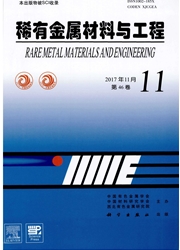

 中文摘要:
中文摘要:
将成骨前体细胞株MC3T3-E1,分别接种于含10%壳聚糖微球的复合材料和磷酸钙骨水泥基体上进行培养,采用MTT法检测细胞在材料表面的增值情况,通过对碱性磷酸酶活性ALP的测定,表征前成骨细胞向成熟成骨细胞的分化状况,并利用环境扫描电镜(ESEM)观察了细胞在材料表面的粘附、增值和生长情况。结果表明,两种材料均具有良好的细胞相容性。细胞在含10%壳聚糖微球的复合材料表面增殖、分化能力更强,表现出了比磷酸钙骨水泥基体材料更好的细胞亲和性。
 英文摘要:
英文摘要:
In order to study cell affinity of the composites, pre-osteoblasts MC3T3-E1 were seeded on CPC (calcium phosphate cement composites) with or without 10% chitosan microspheres, respectively. The adherence, proliferation and growth of the cultured cells were examined by MTT and observed by ESEM. The differentiation of pre-osteoblasts to adult cells was examined by ALP activity. The results of these experiments showed that both materials had good biocompatibility. Osteoblasts could adhere, proliferate and grow better on the composite with 10% chitosan microspheres than on CPC. Hence, chitosan microspheres/calcium phosphate cement composite have better cell affinity than CPC.
 同期刊论文项目
同期刊论文项目
 同项目期刊论文
同项目期刊论文
 期刊信息
期刊信息
